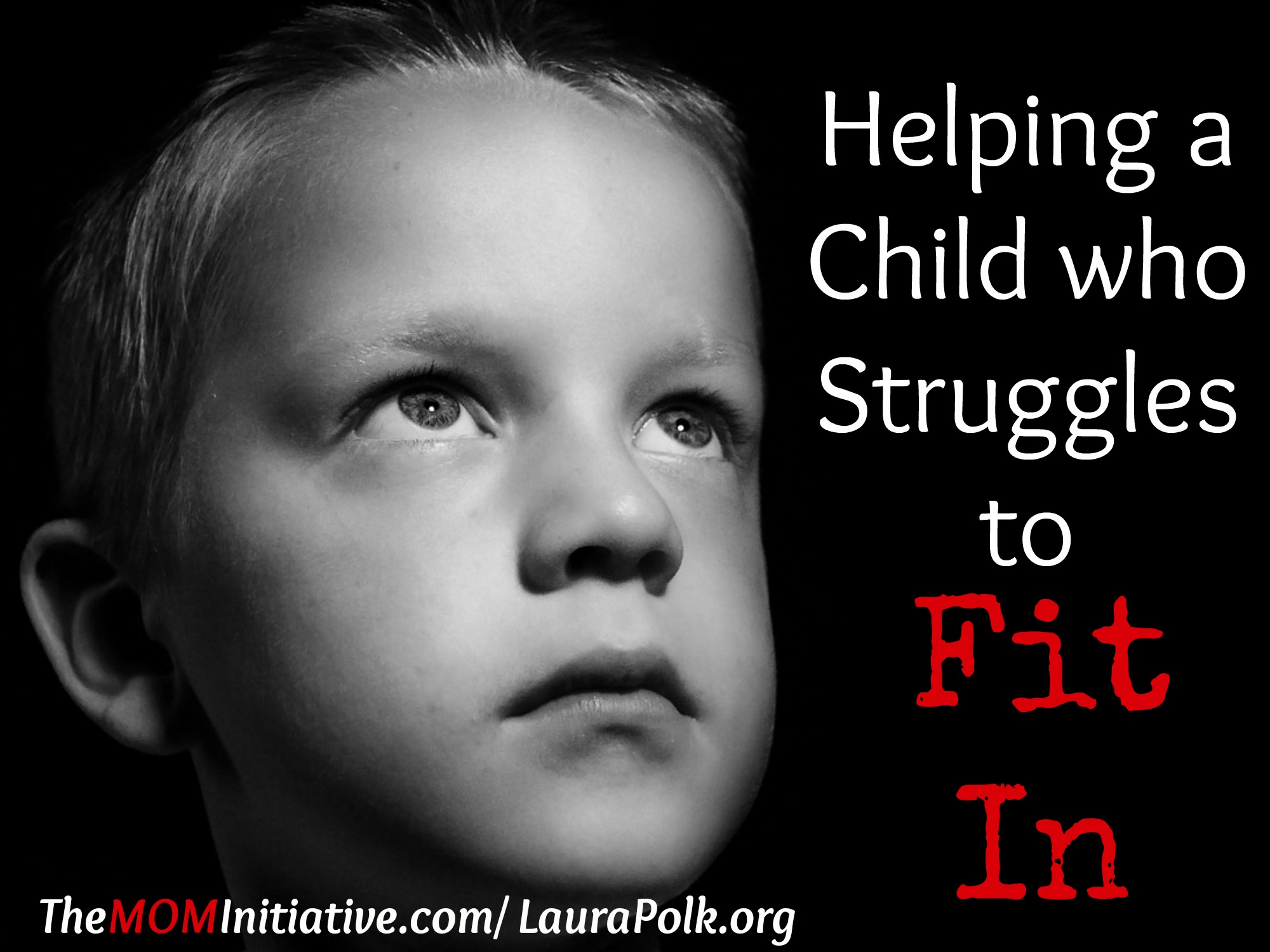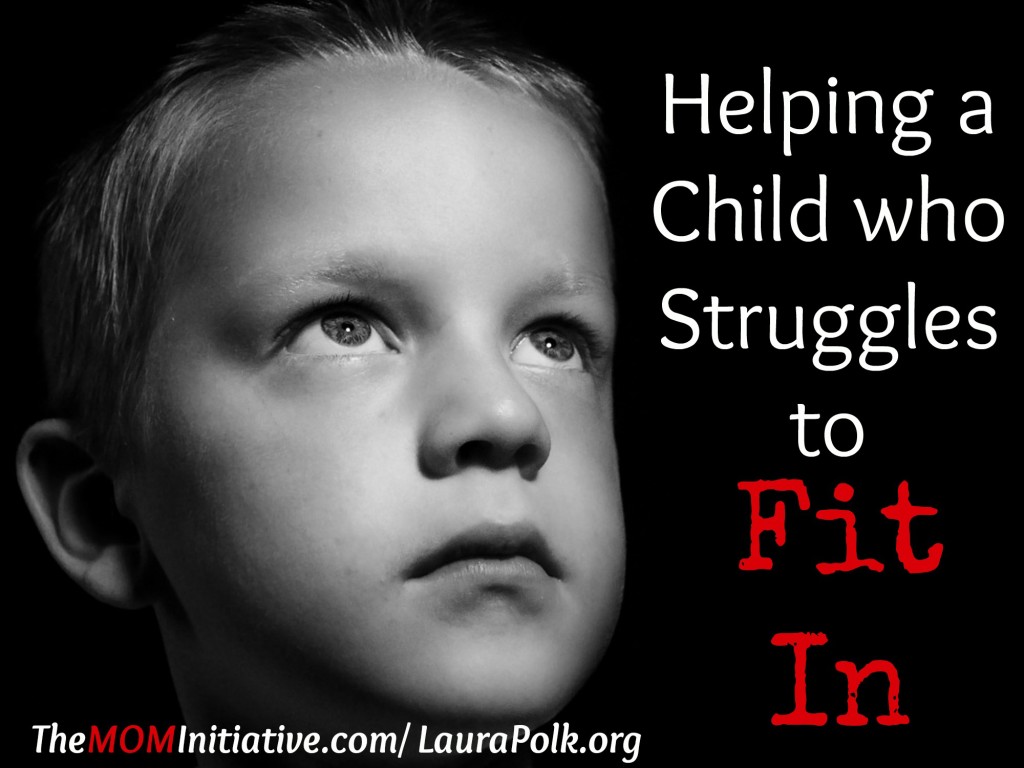It’s enough to break a mother’s heart.
Your child comes home and declares that no one likes him. Or worse, you witness him being rejected by those he’s trying to befriend. Maybe it’s a maturity thing. Maybe your child is one of a kind. Or maybe their choices set them apart. But, for whatever reason, they don’t seem to fit in with the kids in their peer group.
Because we are made for community, feeling like we don’t fit in can be very disheartening. It’s instinctual to be part of a group, and being able to fit in gives us a sense of security, safety, and confidence. But, even as adults, we suffer through this. In fact, everyone feels as if they don’t belong at some point in life.
With that in mind, if you find this happening to your child, I encourage you to remember:
- Don’t overreact. Early friendships ebb and flow. While your child is left out one day, he may not be the next day. Give it a little time.
- Talk it out. Take time to hear your child’s side. If they are hurt by the reaction of others, let them express that. Use that time to talk about respecting others feelings so that he begins to see that not only are his feelings valid, but that he can manage them. Allow them to get it out without criticism. Keep it lighthearted.
- Just one. While, as parents, we may feel the need for our children to have “lots” of friends, they may be happy with just one. Help your child to identify just one person that they have things in common with, who might make a good friend. Think outside of his normal circle. Maybe there are children in a nearby neighborhood, someone from church, or another activity that they enjoy.
- Remind your child of all the things that make him unique. That he is deeply loved by you, and by God. Talk to him about what great assets these things are, even though at his age, others may not recognize them as such. Talk about times you’ve felt left out, and how everyone feels that way at times. Show him that he’s not alone.
- Teach them how to be a friend. The older our children get, the more we tend to assume that they can handle things. The truth is, not everyone is adept at making friends. Talk with your child about what being a friend means. Make sure that they understand that it goes both ways. Kindness and empathy are two key actions to building friendships. Help him take small steps toward more confident friendships.
- Don’t let them form a grudge. Being hurt by peers can cause children to isolate themselves and choose not to participate when they are eventually given a chance. Teach your child to forgive those who hurt him, so that he is free to give and receive love to others.
- You can’t fix it. Accept this for what it is. Getting too involved will only increase the stress your child feels over the situation. Teach by example that you can’t change everything, but that you can work hard to fix the things you can.
Romans 12:10 says:
“Be devoted to one another in brotherly love. Honor one another above yourselves.”
- Ch…ch…ch…CHANGES Are Coming in 2017 for TMI - December 27, 2016
- What New Thing Are You Ready to See God Do in Your Life in 2017? - December 26, 2016
- Heaviness and Newness - December 23, 2016




